|
1/10/2023 0 Comments The Mind-Body Connection: How Emotions and Chronic Stress can Affect Your Body Photo by bruce mars on Unsplash Perhaps you suffer from a physical condition and want to gain a better understanding of the different factors that might be influencing it. Maybe you are generally interested in learning more about the mind-body connection. If so, please read on. In this article I touch on what science has to say about the influence of emotions and stress on the body, and how this may show up for you.
First let's look at the medical world and its take on the mind-body connection throughout history. One could say that there are two predominant schools of thought or polarities within the field of medicine. A more materialist approach that treats each body part or organs individually and, thus, doesn't establish a direct connection between the mind and the body. And, a more holistic or inclusive approach that takes into account the mind and body as a whole. Although both approaches are valid in their own way and have helped us make incredible progress over time, today we will focus on the second one. It is only in the last decades that science has made a significant headway. However, this goes way back in time. Hippocrates (460 BC - 370 BC), referred to as the "Father of Western Medicine", in recognition of his lasting contributions to the field as the founder of the Hippocratic School of Medicine, believed the body was regulated by the psyche, or the soul. One of his greatest contributions was to separate medicine from religion, advocating that disease was not a punishment sent by the gods but was the result of various factors such as diet, lifestyle and environment. He said that: “Health is not merely the absence of disease, it is the balance of mind, body and soul.” His views were also shared by great philosophers such as Plato and Aristoteles. However, it wasn't until 1818 that the term psychosomatic - A physical illness or other condition caused or aggravated by a mental factor such as internal conflict or stress - was introduced in a medical context by German Psychiatrist Heinroth. Later on, Georg Groddeck (1866-1934), considered by Freud as an innovator in the field of psychosomatics, published books such as The Book of the IT (1924) to expand on his findings. He believed that all forms of illness express an internal conflict and are psychosomatic in nature. He also sustained that disease has its meaning and purpose. Nowadays, the field of Psychoneuroimmunology is consolidating the science behind the mind-body connection, by studying how an emotional impact can affect our inmune, nervous and endocrine system, resulting in disease. And, according to the US Medical Association, 75% of all health problems are caused by emotions, stress being the biggest threat to our health (Integrative Oncology Dept. Oxford University Press. 2009). I am not going to go into great lengths here, as there are many articles and books you can read on the subject. However, it is now common knowledge that there is an obvious connection between the mind and the body, and a consensus on the fact that our emotions do affect our biology. One simple way to understand the effects of prolonged levels of stress on the body is to look at how our brains work. Over time, we've developed a more complex neocortex. This part of our brain is largely responsible for higher cognitive functions such as our rational thinking, and ability to project ourselves into the future or dwell on the past. It also sets us apart from most other animals. Take a zebra peacefully grazing in the African Savanna. All of a sudden it senses the presence of a lion lurking behind the bushes. This will alert its reptilian and limbic brain (the older parts of our brains), eliciting a flight response. So, in order for it to muster the energy it needs to run for its life, its body will redistribute energy levels to functions that will enhance its ability to run, shutting down other parts like its immune system, for example. Think of it as a built in emergency, energy saving system. It's a brilliant biological solution. However, it is only designed to last for short periods of time and is not sustainable over time. Once the zebra is out of danger, it will resume its activities, allowing its body to regulate itself again and go back to homeostasis. Unlike us humans, It won't sit there dwelling for days on end about the terrible things the lion tried to do or might do to it in the future. Your unconscious mind doesn't distinguish between a real threat and a perceived threat. Whatever you are thinking about is real to your mind. Therefore, your lion could be your credit card debt, your mother in law, your boss, your unfaithful spouse or whatever you are constantly worrying about. Your constant worrying is activating the same physiological response as the zebra. In other words, your body is preparing for fight/flight in the same way. Over extended periods of time, this can wreak havoc on your immune system, resulting in a physical symptom or condition. Therefore, addressing the emotional factors that might be influencing your body, as well as how you perceive and respond to your environment, can greatly help your overall wellbeing in the long run. If you want to delve further into this fascinating topic, please stay tuned for episode 007 of the Art of Living Consciously Podcast: The Mind-Body connection: How to Boost Your Emotional and Physical Wellbeing. release date: Jan 11th 2023. You'll learn:
Click here to find out more.
0 Comments
 Photo by Kristopher Roller on Unsplash As 2023 approaches many of us are choosing to reflect on how we showed up in 2022. I personally believe that regular self-assessment is a must for anyone who wishes to evolve and reach their goals. Some of the questions I periodically like to ask myself are:
Getting real about what isn't working is a way to point your compass in the right direction again and implement healthier habits. The same goes when approaching your addictions, which I am sure you are also looking to leave behind, right? Now, before you jump in and tell me that you don't have any addictions, allow me to challenge you to look at yourself deeper so you can gain some real insights and make lasting changes in your life. In this article we will look at what addictions are, what causes them and how you can ask yourself the right questions to start addressing them at their core. We tend to mostly associate addictions with some sort of drug or substance abuse. However, addiction is much more common than we like to think. To a large extent, we are all pretty much addicted to something in some shape or form. If you think about it, you can be addicted to social media, work, feeling guilty, people pleasing, sweets, exercise, complaining, apologising, drama, certain people or relationships, instant pleasure, shopping, video games and the list goes on. However, if you look at addictions the right way they can turn into potential growth opportunities. In order to do that, it's important to understand that addiction doesn't stem from the thing you are doing, but from what is driving you to do that thing. In other words, your addiction is the symptom of a deeper conflict that you are not currently addressing. Let me put this differently: the problem is not the ice-cream; the problem is what is driving you to grab the tub out of the fridge. One thing is treating yourself to some ice cream and savouring that moment, another is to reach for it because you need to comfort yourself and numb your feelings. The first behaviour is healthy, the second one is addictive. The ice cream in and of itself doesn't have the power to harm you, what determines whether it may harm you or not is your intention. In a nutshell, an addiction is a behaviour we resort to, in order to avoid facing something specific in a specific emotional environment. The real poison lies in what you are not facing, NOT in the behaviour you are reverting to, in an attempt to make yourself feel better. Therefore, if you want to get on top of your addiction, you need to get clear on what that environment is and what you are trying to avoid through your addictive behaviour. Once you have detected an unhealthy behaviour or addiction, ask yourself the following questions:
For example, you might be at home with your parents and siblings, and find yourself in a situation where you feel that you can't truly express yourself. Therefore, you decide to make an exit to the backyard and grab a cigarette, or aimlessly scroll on your social media feed. That kind of behaviour gives you a momentary sensation of relief and freedom. However, although at first it may alleviate your discomfort, it is actually preventing you from addressing the real issue. So when, a similar situation presents itself again, instead of tackling what is really bothering you and, for example, finding the courage to say what you really feel, you will use that same behaviour as a way to numb your discomfort, only perpetuating the conflict further. As I mentioned, in my earlier examples, you can also be addicted to people. A story that comes to mind is one of a student of mine, who when asking herself the above questions realised that she was addicted to worrying about her daughter and calling her often. As she delved further, she understood that she used that mechanism to avoid facing the void she felt in her marriage. She understood that she needed to address that void by reconnecting with herself, her needs and having some uncomfortable conversations with her husband to reconnect with him. That is what I mean by allowing your addictions to show you what you most need in order to grow. If you look at it that way, your addictions can evolve you. That's why I highly encourage you to start observing where and when you tend to resort to the same kind of behaviours. It can be a good exercise to carry a small notebook with you, or even use your phone to take note of the moments in which you catch yourself choosing to "check out". When you see yourself going for that tub of ice cream, glass of wine, phone, credit card or whatever it may be for you, pause and ask yourself: What is bothering me? What am I feeling? What am I about to avoid facing? and, what do I need?Write your thoughts down, and you will likely see a pattern start to emerge. That is your ticket to start addressing the real issue. Often times, the answer is changing your behaviour and the way you relate to your environment and sometimes the answer can be to change your environment. If you want to delve into this topic further, stay tuned for my upcoming podcast episode on addictions. The episode will be released on Wednesday 28th of December 2022. For now, I strongly encourage you to observe yourself and question your behaviours in the way we just learned, for all the answers are within you. You just need to ask yourself the right questions. And, of course, if you suffer from a severe form of addiction please also seek the professional support you might need in your recovery process. Some say your soul chooses your family well before you are born. Others say that where you end up is the luck of the draw. Either way, one thing is for sure: conflict is an intrinsic part of family life. And, if you choose to look at conflict as an opportunity for growth, regardless of whether you think that you have won/lost the lottery, or are on a purpose driven soul mission, your family will always give you an opportunity to evolve and thrive.
Understanding your family dynamics, as well as your role and how it might fuel current issues you are experiencing, will help you to deal with adversity in a more mature and evolved way. It does not mean that you have to condone and tolerate dysfunctional behaviours if they exist, but understanding the family system as a whole will allow you to have more compassion for yourself and the other people involved. And then, you can ask yourself a very deliberate question: How do I want to show up? Who do I want to be in this situation? First, I invite you to look at your family as an ecosystem of its own. Like all ecosystems it relies on its members to maintain balance or homeostasis. There are many ways in which this occurs, but for now, let's look at family loyalties, how they might be regulating your ecosystem and how it can affect you. Family loyalties can be defined as the feeling of mutually shared obligations, responsibilities, commitment and closeness that exist among family members. Being loyal to your families involves honouring family traditions, obligations and ascribing to a shared identity. It allows us to be emotionally present during both family highs and lows, like for example supporting a relative during illness, a financial crisis, the break up of a marriage or death. Biologically, family loyalties protect the family system by keeping it tight knit and healthy loyalty is a good thing as it builds trust and solidarity. However, blind loyalty can lead to family dysfunction. In a nutshell blind loyalties are a more complex form of people pleasing and typically prevent certain family members from completing their individuation process. The term individuation was coined by Carl Jung and refers to the stages that we go through to gradually separate from the family unconscious, and become our individual selves. Adolescence is a crucial stage in that process. That's when a child gets to cultivate their own interests, often rebelling against their parents, seeing them as the fallible human beings that they are. It's their ticket to start their journey into the world. However, in dysfunctional families, an individual may be so blindly loyal that the family’s needs become greater than his/hers. Therefore, blind loyalty is an unconscious mechanism that keeps individuals from fully moving away from their family and building their own life and sense of self. Similarly to people pleasing, loyalty usually begins in early childhood to win parental love, approval, and acceptance. In those cases, a child can remain trapped into fulfilling an unconscious role at the expense of their own life purpose. For example, a child growing up in a household with parents who, for whatever circumstances, are struggling emotionally, might adopt a caregiver role by tending to their emotions in whatever ways they can. This, in psychology, is referred to as parentification. The parent role that the child unconsciously takes on can bind them to the family, helping maintain homeostasis and peace within the family ecosystem. Therefore, as an adult you might continue to put your caregivers' needs first. In your personal life, this can show up in a number of ways. For example: you might lack a clear sense of direction and be prone to self sabotaging, you might find it difficult to maintain a committed relationship, you might struggle to become financially independent and rely on family help, you might be living with your parents well into adulthood etc. These are all unconscious ways of remaining emotionally available for your caregivers and their needs. You might have heard stories of people who after having been forever single, suddenly found love later in life, shortly after both parents had passed away. This is likely a case of blind family loyalty, where there was an unwritten rule that building their own family unit was a threat to the system's homeostasis. It’s important to understand that we are referring to emotional dependence, therefore physical distance is irrelevant. You might live in a different country, but still be emotionally dependent, relying on your parents to help you make most of your decisions for example, or listening to them repeatedly offload their issues onto you. Some people will refer to their mother as their “best friend”, and that is usually a sign of role reversal. I hate to break it to you, but the “Gilmore girls” mother daughter relationship is the typical example of what I am referring to here. A mother is not meant to be your best friend. She is meant to be the grown up in the relationship and seek emotional support in her partner, her own friends or a therapist. Now, this is not about judging you parents or yourself, but about understanding what might be going on so you can start acting in a different way. Emotional dependence is a two-way thing. Both parties are relying on each other and trying to meet their own emotional needs the best they can, with the tools they have. For example, a mother might project her own childhood needs onto her child, by giving her daughter the time and attention she didn't get from her own mum, becoming overbearing as a result. And, the child might learn that being emotionally available for mum and listening to her problems, is a way of getting her love and approval. If you don't know any better, you might resort to those coping mechanisms. However, there is a much healthier way to go about this. It is a call to start looking within, instead of projecting your needs outwards. Sure, there is an unconscious, and in some cases a blatantly conscious, refusal on the parent’s side to let the child grow up, but this is only made possible because there is a part of the adult child who prefers to stay in their comfort zone rather than to rock the boat. Unconsciously these patterns can be understood as dysfunctional coping mechanisms. But once made conscious, it is your responsibility as an adult to change the status quo by choosing to tend to your own needs, setting some boundaries and/or learning to trust yourself and your decisions, for example. Ironically, in those cases, being disloyal to the system is the best way to honour it, because by choosing you first, you give others permission to do the same, putting an end to a, very often, multigenerational dysfunctional pattern. The Disney movies Coco and Encanto, are beautiful accounts of that. Since awareness is key, let's recap. Signs of unhealthy family loyalties may include:
If you resonate with one or various of the above examples, a good question to start asking yourself is: What do I gain when I behave that way? What am I hoping to achieve for myself by putting other people’s needs, ideas and wants first? It may be that you are trying to gain approval, love, validation etc. And, it is an invitation to start thinking about how you can honour yourself and give yourself that very thing that you are looking for in others. Another good question to ponder is: Who would disapprove if I started behaving differently? Breaking away from dysfunctional family loyalties and reclaiming your true self, is going to rock the boat and it is very likely that some people will disapprove of your behaviour. However, rocking the foundation of a dysfunctional ecosystem, allows for a new, healthier one to start to emerge. And you are the master of your own life. No one else but you is responsible for staying true to yourself, and creating the one you want. Our time on earth is limited, do you really want to spend it living someone else's life? And, are you ready to start leading by example? PS: If you are feeling stuck and need some extra help to see what is driving you to repeat the same conflicts or behavioural patterns, like the ones mentioned in this article, and gain tools to start acting differently and get different results for yourself, a BNE session might be just what you need. You can find out more about how I can help you achieve that here. PPS: If you want to delve into this topic further, stay tuned for my upcoming podcast episode on blind family loyalties. The episode will be released on Wednesday 21st of December 2022. 12/5/2022 0 Comments How To Stop Being a People PleaserDo you feel like there is not enough time in your day to get everything done? Do you feel overwhelmed, taken for granted and undervalued? Chances are that you have people pleasing tendencies, and that the real problem comes from how you respond to the people in your life, constantly prioritising their needs over yours. However, allow me to put a different spin on the story you might be telling yourself. The plot twist is that by over compensating for others, you are most likely trying to meet your own needs. In other words, by over giving you are unconsciously trying to get something from the other person. That's what is really making you exhausted and frustrated. Let me be clear, my intention here is not for you to start judging yourself, but to give you access to different coping strategies; ones that will actually work for you. People pleasing is a very common problem and, by the same token, a perfectly solvable one. I know what I am talking about as I am a recovering one. So, I understand how uncomfortable it can be to look at your behaviour from the particular angle I just gave you. However, as you will hear me repeat time and again, awareness is key. And, I can assure you that it is the kind of awareness that will allow you to lead a more balanced and fulfilling life. It will help you to start looking at ways to meet the needs you are currently projecting onto others. Before we do that, let's look at how people pleasing might show up for you. Below are some common people pleasing characteristics: Commonly, you'll see people pleasing with one or more of these traits: Low self-esteem, overachievement, a strong need to control, type A personality style & perfectionism.
Now, what I want you to understand is that people pleasing is NOT the cause, but the effect of a much deeper issue. As I explained earlier, the answers lie in those unmet needs that are driving you to act that way. So the surest way to tackle the real issue, is to take a good look at what those needs are. Often, when you resort to people pleasing, it is the wounded child in you who is running the show. You might have grown up in a household where, for whatever circumstances, your parents were too caught up in their own struggles to tend to your needs in the way you wanted them to. For example, you might have had parents who argued often and one of them would criticise the other, offloading their emotions on to you. You learned that listening to them and tending to their emotions was a way to get their approval and love. Or you might have learned that being the good girl/boy, and silencing your own wants & needs, helped apease your caregivers, and earn their approval. There are many different case scenarios. I just wanted to give you a few examples, so you can see how as an adult you might be resorting to the same mechanisms to get what the child in you is still yearning for. Having said that, although going back to childhood can be useful to understand where your behaviour comes from, the real answers are in how you are choosing to show up as an adult. Blaming your parents is just another way of not taking responsibility for your behaviour and staying stuck in the same old rut. Yes, you can absolutely tend to that child and do your inner child work. However, you are in charge of your life now and you owe it to that child to get yourself back in the driver's seat. One of the best ways to do that is next time you find yourself carrying out any of the behaviours listed above, ask yourself: What am I doing this for? What need am I trying to validate by being out of integrity with what I want for myself. Let's say, for example, that you are at a party and you promised yourself not to have any alcohol. But then, the host pulls out an expensive bottle of wine that he wants to showcase for the occasion. You see the look of joy on his face when he brings out the bottle and your intention for yourself goes out the window.You may ask yourself: what am I trying to achieve for myself by having that glass of wine?The answer could be along these lines: - I avoid upsetting him. - And, when I don't upset him what do I get that is even more important for me? - I make him happy and avoid any type of conflict. - And when I avoid conflict and make him happy, what does that give me? - I feel accepted and, therefore, valued. Now ask yourself, what is a better way for me to value myself in that situation? Saying that you appreciate his gesture, but that you don't want to drink alcohol and declining his offer, is a way to value yourself. Ironically, it is a far better way to appreciate and value the other person too. Because, at the end of the day, when you are out of integrity with yourself you are also acting out of integrity with others. Nobody is saying that you can't do people favours and compromise from time to time. Emotional maturity comes with being flexible at all times and knowing when it is appropriate to behave one way, and when it is not. Therefore, you must be very clear on the intention behind your behaviour. If you are truly acting from a place of love and generosity, you will not end up feeling resentful or burned out. In my upcoming podcast episode, I shall delve deeper into the root cause of people pleasing and give you additional tools and tips to trade in that habit for healthier ones. I also explain why people pleasing not only disempowers you, but also disempowers the person you are trying to please. The episode will be released on the 14th of December, so please feel free to listen in then. To access the full details, click here. And remember, once you decide to look at your share of responsibility in your conflicts, you regain the power to choose who you want to be in any given situation. You get to parent the scared child in you, in the right way this time. PS: If you are feeling stuck and need some extra help to see what is driving you to repeat the same conflicts or behavioural patterns, a BNE session might be just what you need. You can find out more about my work and how I can help here. If there is something that we have all been reminded of over the past years, more than ever, is that life is short, unpredictable and that it will end for every single one of us at some point. If you think about it, similarly to the prospect of our own demise or unavoidable death, there is something awe inspiring about any kind of crisis, whether it be personal or global. Yes, you read me right. I said awe inspiring! Because, with the right mindset, it can push us to want to live life fully, to make the most out of it, instead of wasting it away as if it was never going to end. Sometimes, the best thing that can happen to us is to go through a massive crisis, because it jolts us right out of our sleep walking stupor and pushes us out of our comfort zone. Take COVID for example, there are countless accounts of people who used lockdown as their own wake up call. They used their time wisely, learning new skills, growing new businesses often after losing their jobs, sorting out their mental health, mustering the courage to walk out of dead end relationships or strengthen them, you name it. The COVID crisis highlighted the areas in their lives where they had become too comfortable and had been tolerating the intolerable. So, they did something about it. They decided to venture into the unknown and take action to get different results. Often that meant taking risks and failing before they got it right, but they kept going. This is what we call a growth mindset and I believe that anyone can cultivate that kind of outlook in life. A growth mindset teaches you that you can do and even enjoy hard things. The good news is that you don't necessarily have to wait for a crisis to hit you, before you choose to shift your mindset. Believe me it is possible, because I went through that journey myself. And if I was able to do it, anyone can do it. Let me tell you, before I picked up Dr. Carol Dweck's book, Mindset, I didn't even know what the terms fixed and growth mindset meant. So, when I read the description of a fixed mindset I was shocked, as it pretty much described me to a T. Awareness is key right? So just like Lockdown did for many of us, it forced me to take a lovingly long hard look at myself and make the decision to change, to get different results. What is the difference between a fixed mindset and a growth one? Well in a nutshell, a fixed mindset sees failure, setbacks, crisis. etc as problems to be avoided, whilst a growth mindset sees them as opportunities for growth. Below are a list of some of the characteristics that set both perspectives apart: I like to see both columns as opposite polarities, and integrating them both is a way to find your personal balance. Some situations, for example, will call for more caution and others will invite you to take more risks, but chances are that if you are reading this, you have swayed far down the end of the fixed mindset spectrum and are looking to get unstuck.
As I said, awareness is key, and just noticing your tendency to prioritise safety and comfort over growth is a huge step in and of itself. The second step is making the decision to change. Notice that I said DECIDING to change, not trying to change. Making that decision is crucial, because in order to get unstuck you have to accept to go through some level of discomfort. In fact, the more comfortable you decide to get with discomfort the better. So if you are just dipping your toes in at this point, you are not going to get very far. Change requires a level of commitment that only you can take on. Nobody else can do that for you. That's why a crisis, an illness, a loss can be so life changing because there is no other alternative than to make that decision. But, do you really want to wait for that to happen? In his thought provoking book, Four Thousand Weeks, Oliver Burkeman asks: Where in your life or work are you currently pursuing comfort when what is called for is a little discomfort? Committing to something means taking the risk that it might fail so we naturally tend to make decisions that prioritise anxiety avoidance: procrastination, distraction, commitment avoidance, taking on too many projects at once, are all ways to maintain the illusion that you are in charge of things. So is compulsive worrying! Ask yourself, does this choice diminish me (stunt my growth) or enlarge me (allow me to grow)? Choose uncomfortable enlargement over comfortable diminishment whenever you can! Once you make that decision, I guarantee you that, since your focus will be set on it, you will come across the tools to start the process, whether it be through books, podcasts, chats with friends, and even strangers, or YouTube videos that randomly pop up in your feed etc. And, most likely, you will also generate experiences that will help you implement what you have learned. In my upcoming podcast episode: Why Failure Is The Way Forward, I will share some of the tools and hacks that helped me shift my mindset. The episode will be released on the 14th of December. So, please feel free to listen in then. To access the full details, click here. The one thing that I will say, is that cultivating a growth mindset is a life long habit, and being prepared to fail even at that, is a prerequisite to continue to grow and yield different results for yourself. Are you ready and committed to do that? The other day I caught up with an old school friend, whom I hadn't seen in years. She told me that her love life was a disaster. She felt that she always attracted toxic men. Now this is a very common issue that I often help people address in my BNE sessions. So, in this blog post, I would like to give you a few simple, powerful tools that will help you shift your perspective to address the issue from a place of empowerment.
Let me first say that the most powerful step you can take for yourself is to turn your focus inwards, which ultimately is the surest way of addressing the cause of your problems. This may or may not be new to you, but the circumstances in your lives are, in fact, the effect NOT the source of your sorrows. That simple shift in perspective can work wonders because as a great mentor of mine says: "When you can see what you were unable to see before, you can act in a way that you previously thought you couldn't." Before I delve into this, let's get clear from the get go: I am no relationship expert. However, what I am very good at is helping people see their patterns and what they can learn from their ("toxic") partner. For starters, if you ask me, there is no such thing as a "toxic" partner. What we are dealing with here are dysfunctional patterns. And, it takes two to create a dysfunctional relationship. It's a very important point that is often overlooked. What I teach people is to take ownership for their side of the coin, which is a way of empowering them into action. Seeing the other person as a mirror, gives people the possibility to understand how they are contributing to the dysfunctional pattern. This, in turn, allows them to make changes that will improve their lives. For, as Marcus Aurelius, very wisely said: "If you are distressed by anything external, the pain is not due to the thing itself, but to your estimate of it; and this you have the power to revoke at any moment". And, how do you assess your estimate of it? Well, there is a very simple trick that you can use to see what the other person is teaching you. First, get very clear and specific about what they are doing that is triggering you. What is a toxic person? Toxic is a broad term that people assign a different meaning to. If we want to assess our estimate, we need to get specific about the behaviour we believe to be the cause of our problems. My friend, for example, might feel that her partner doesn't respect her. A specific example of that may be that he regularly cancels plans with her to spend time with his friends and/or has cheated on her twice. Now that we are clear on the specific behaviour, let's take a look at the mirror and reverse it. The first simple step is to talk about the other person in relation to ourselves. For example: How am I disrespecting myself through him? How am I cheating on myself through him? For instance, remaining in a relationship with someone who repeatedly cheats on you, can be a way of betraying yourself. And, constantly putting your partner's needs first, can be a way of disrespecting yourself. The second step is to ask yourself two simple questions with regard to your partner's specific behaviour: What are they doing that I am not allowing myself to do? Or, In what other areas of my life do I behave in the same way? For example, my friend might default to waiting to hear about her partners plans before agreeing on spending time with her friends. She doesn't allow herself to think of herself first. In that case, her valuable mirror is teaching her to think of her own needs more, without feeling the urge to always wait around for him. And if she delves a little deeper, she might come to realise that she repeatedly cancels plans with her best friend, when her partner calls. Therefore, she also acts like him in other areas of her life. Ultimately, she has attracted the perfect match for her growth. Once she has understood the lesson, she can take appropriate action in order to start respecting herself. We always judge in others what we are unable to see in ourselves and that is where the most valuable lessons are. These are powerful questions that can really help us navigate our relationships in a mature, responsible way and give us simple answers and solutions to our problems. As I mentioned earlier, if we truly want to evolve as people and become the masters of our own lives, turning the spotlight inwards is a must. That's when we truly understand that every single experience is rooting for us to grow, and that the answers lie within, never without. Ps: if you need a further hand to delve into a relationship pattern you feel stuck with, BioNeuroEmotion (BNE) is a wonderful method that will help you shift your perspective, so you can foster meaningful changes in your life, by transforming your conflicts into stepping stones for growth. My mission is to help you move beyond your perceived limitations, tap into your intrinsic wisdom and make conscious choices so you can live your life fully. You can find out more about my work and book a session here. 10/29/2021 0 Comments Good Boss Vs. Bad BossWhen assessing your actions, your performance etc. do you tend to be highly-critical of yourself? Or, on the contrary, are you the kind of person who focuses on the good and finds it hard to take an honest look at what you could improve?
Self-evaluation is an important part of growth. Whether it be for professional or personal reasons, assessing what you did well and what you can improve is crucial to learning and growing as a person. And, as with everything, it’s about finding a healthy balance in the way you look at things. However, most people tend to be polarised, i.e. they are excessively self-critical or the complete opposite. As part of my training as a Bioneuroemotion practitioner and my work with Enric Corbera Institute, I am required to periodically evaluate my sessions. It’s a must and a great exercise to keep improving my services, as well as highlighting areas I can improve in my own life. As the saying goes: the way we do anything, is how we do everything. So, a professional self-evaluation is also a great personal assessment tool. Personally, I tend to be overly self-critical and it is a trait that I have been increasingly aware of and that I am looking to learn from. Wherever there is an imbalance, there is a growth opportunity, right? Therefore, a few weeks ago I discussed this issue with a good friend of mine, who also struggles with self-criticism in her self-evaluations as a coach, despite being a very successful one. As a result, we ended up watching a training together, which I loved and wanted to share with you to give you some extra mindset tips for self-assessment. Most of us have come across a boss, superior, teacher etc. who we disliked for the way we felt they treated us. I’d like you to think about that person and write a list that best describes their behaviour and why you think they were a “bad boss”. For example:
Now I’d like you to think about a boss, superior, mentor etc. you feel really helped you grow and thrive. Now, draw another list next to the first one and outline their “good boss” qualities. For example:
Now I would like you to look at both lists and think about what kind of boss you are to yourself. What qualities have you projected in either of those two bosses? Which ones do you want to start taking on and which one do you want to drop or do a little less of? And next time, you find yourself assessing anything you do, think about what kind of boss you want to be. Then, say to yourself: how can I help myself grow from this situation? If you tend to be unforgiving or harsh towards yourself, soften your gaze. If, on the other hand, you are reluctant to see your mistakes, ask yourself: how am I stunting my growth by refusing to look at what is? How can I be kind to myself, by facing my mistakes and learning from them? This simple projection exercise is a powerful tool you can incorporate in many aspects of your life. When you understand that the way you perceive others is a projection of your own internal state, you can stop focusing on the effect of your problems and address the cause that lies within you. That’s when true growth happens. Are you ready to start taking ownership for your growth and act as a true boss? Ps: if you need a further hand to look at your projections from an objective perspective, BioNeuroEmotion (BNE) is a wonderful method that will help you shift your perspective, so you can foster meaningful changes in your life, by transforming your conflicts into stepping stones for growth. My mission is to help you move beyond your perceived limitations, tap into your intrinsic wisdom and make conscious choices so you can live your life fully. You can find out more about my work and book a session here. 10/24/2021 0 Comments The Wisdom Of TraumaTrauma as it is understood by many, can be an overloaded term often associated with helplessness. In this blog post my goal is to bring its wisdom to the forefront so you can start to take your power back.
It is important to understand that It’s not what happened that matters, but how what happened made you feel inside. In that sense, trauma can be anything that made you feel negatively about yourself, and that you were unable to fully process and cope with. Therefore, a way of healing trauma is to understand what pushed you to respond in a certain way, and why you keep responding similarly to date. The goal is not to relive traumatising events, but rather to re-interpret them, so you can respond differently. In his wonderful book Waking the Tiger - Healing Trauma, Dr. Peter Levine explains that, as a result of trauma, the body stores trapped energy. Therefore, in order to release that energy the brain seeks to recreate similar situations so we can respond differently to them. It uses metaphors, i.e. current representations of people, places etc. from the past. and then assigns a similar meaning to these metaphorical experiences (your interpretation of what is happening). For example, as a child your mum might have constantly confided in you about your Dad’s behaviour, or sought your support during fights. In many instances, you might have felt helpless and also learned to keep your problems to yourself not to worry her further. You learned to put your needs second because it got you your mum's attention and love, and kept you safe. It became your coping mechanism. At the time, you didn’t have the tools, possibility or awareness to let her know that this was upsetting you. You didn’t know how to set healthy boundaries for yourself, express your own needs and seek support. This could have been traumatising to you because, as I said earlier, trauma is not what happens, but how what happens makes you feel. The good news is that trauma is an incredible source of growth, if we are prepared to learn from it. Therefore, you will be given plenty of opportunities to heal, because the brain will make sure to recreate those same circumstances in your current life, through how you perceive your experiences. For example, your boss could be a current metaphor for your mum. She might be going through a rough divorce and has been sharing her concerns with you. As a result you have reluctantly been accepting more workload, to take the weight off her shoulders and can’t bring yourself to tell her that you really need a week off to go to your best friend’s wedding. Sound familiar? The wisdom comes from seeing the experience as an opportunity to act differently, by taking responsibility for the role you are playing and allowing the adult in you to take over. By re-interpreting your childhood experience, you might understand that your mum did the best she could with the tools she was given herself as a child. Therefore, from that place of understanding, you will be more in touch with your own needs and can allow yourself to do what nobody had taught her either: value yourself, set healthy boundaries, listen to your own needs first and learn to express them. That’s why the purpose of a BNE session is not to erase past programs and beliefs, but rather to help you re-interpret them so that the adult in you can take its power back and choose to act differently, in the face of adversity. The goal is for you to see the bigger picture, connect the dots and understand what this is happening to you for. If you feel stuck and need an extra hand to see the bigger picture, BioNeuroEmotion (BNE) is a wonderful method that will help you shift your perspective, so you can foster meaningful changes in your life by transforming your conflicts into stepping stones. My mission is to empower men and women to move beyond their perceived limitations, step into their best selves and make a difference in the world. You can find out more about my work or book a one on one online session here. Did you know that throughout your life you are likely to spend more time at work than with your own family and friends? And, actually, to your unconscious mind your workplace is your family! That's right, it makes absolutely no distinction between your nuclear family and your "work family". So, the conflicts that appear at work are often a projection of what is going on in your own family and vice versa. Work conflicts like all conflicts, especially if they repeat themselves time and again, are growth opportunities in disguise. Whaaaat??? Do you mean that annoying work colleague and my "awful" boss could actually be the answers I am looking for? Yes, absolutely! It really boils down to how you choose to look at things. You can either decide to be a victim of your circumstances and blame others for your predicament, or choose to see the story you are projecting on your outer world through different lenses. The first option leaves you defenceless, the second one empowers you to evolve and grow. Which one do you prefer? Spoiler alert: I am not about to discuss the first option! If you are curious about the second, please read on. You will find out why your work environment is so closely related to your family environment, how you can spot those repetitive conflicts, and start handling them differently. FAMILY AND THE WORKPLACE You might still be thinking: wait how can my "work family" and nuclear family be the same? So, let me put this simply. In this world nothing is a coincidence, it's all just information and resonance. Your belief system, which you largely adopted at an early age and even inherited, shapes the way you see the world and how you interact with others. All day long you are broadcasting/projecting those beliefs (information) into the world. And, you resonate with people and situations that match those beliefs (either in a similar way, or as polar opposites). Your original family (mother, father etc.) provided the "seed environment" in which most of those beliefs were planted, and every person you meet from there on, resonates with that environment, at some level. Your relationships, including those you develop at work, are an expression of your own internal beliefs. By extension, conflicts are just the expression of unconscious beliefs that need to be brought to light, so you can understand them, transform them and choose to act differently. Your conflicts are rooting for your evolution! I know this may seem hard to grasp at first, but it really is THE ONLY WAY THROUGH. There is a reason you unconsciously chose that work environment, so pay close attention! SPOTTING NEGATIVE PATTERNS AT WORK Work is not just a physical place, it is also a mental space, where self-awareness helps us thrive. And, understanding the link between personal space and workspace is an added bonus for anyone who wants to lead an empowered life. Since you probably spend more time in your work environment than with your family, it makes sense that any unresolved conflict that comes up in one "family" would show up in the "other". This happens through the exact same projection mechanisms as the ones I have been exploring throughout my blogs. Negative beliefs invariably lead to excessive reactions. You might find yourself in a work relationship with someone whose actions and presence make your blood boil, repeatedly irritates you, or sends you in despair, for example. Pay close attention to those clues as it is a sure sign that the person or situation is triggering some valuable information in you. Start to notice the way you react and the judgments you make about that person or situation. Pay attention to how it feels in your body and just take note. You might then start thinking of other similar conflicts and situations you have had in the past with different people at work. The people and workplace might change, but the conflict remains the same. That's how you get to spot a pattern. Possible examples of patterns may be:
Obviously these are just examples. Anything that triggers you and shows up time and again is a clue that there is a negative belief running the show. It is, therefore, a source of potential growth for you. TIPS FOR HANDLING CONFLICT DIFFERENTLY Truthfully, it is not really what the other person might be doing or not doing that is triggering you, but the story you have created around that and what it means for you. That story stems from your beliefs. It doesn't imply that others are necessarily in the right or that their behaviour is justified. This is not about being right or wrong. It's about understanding what a particular situation is showing up for, why you are resonating with it and how you can handle it differently, so you can move on. Here are a few golden rules you can apply to start seeing things clearly for yourself: 1. NEVER SPEAK ABOUT OTHERS, BUT ABOUT YOURSELF IN RELATION TO OTHERS. For example, you might be in a conflict with your coworker and you make the following judgment: "This person doesn't listen to me and doesn't take me into account ever." When you focus your attention on the other person, you are focusing your attention away from the solution. So learn to reframe things in the following way: "How am I not listening to myself and not taking myself into account through that person?" See the difference? Now the solution is in your hands. Is that person perhaps a valuable mirror, teaching you to listen to yourself and take your own needs into account? 2. THE PROBLEM ISN´T EXTERNAL TO YOU, NEITHER IS THE SOLUTION. You cannot change others. It is neither your job, nor your place. You can, however, change yourself and choose to solve your conflict differently, by acting rather than reacting. Sometimes, it might be about setting boundaries and walking away, but always with the understanding that you had something to learn and that everybody played a perfect role in that situation. When you truly get that, you realise that there isn't anybody to blame and there isn't even anyone to forgive. 3. START BECOMING THE OBSERVER OF YOUR OWN REALITY We largely live our lives interpreting the world through our own set of lenses and playing out "the story in our head". Stepping out of that story is learning to move away from interpretation into description. The end goal is to dissociate our story from what actually happened. As a BNE practitioner it is my job to accompany people through that process. However, you can learn to apply this in your daily life as well, by striving to be very descriptive of the situation at hand (no qualifiers, interpretations etc. just pure descriptive facts: what happened?). Here is an example: Interpretation/story: My boss looked really angry and I know he is disappointed with me. What happened: My boss walked in the room, sighed, stared at me, spoke to my coworker and walked out. When you look into your own conflicts try to be very descriptive as well. it might help you understand things further. 4. PAY ATTENTION TO WORK CONFLICTS AND THINK ABOUT HOW THE SAME INFORMATION MIGHT ALSO BE SHOWING UP IN YOUR PERSONAL LIFE. Let's use the first example of a person realising that they are not listening to themselves and their needs, through their co-worker. That information is most likely to show up in some area of their personal life as well (parents, relationship, children etc.). The solution lies in acting differently based on that newfound awareness. Here is a series of helpful questions to get you thinking: 1. Pick a work conflict. 2. Is it an isolated conflict, or is it something that has been repeating itself? 3. Does it involve a man, or a woman? A superior, or an equal? 4. Describe what happened. 5. Now look into the story: What triggers/bothers you about that person/situation? (What is your perception/judgement?) 6. Look at that judgment, reverse that mirror and bring it back to you (How am I/am I not doing (X) through that person? 7. Think about other areas of your life where this might be showing up. 8. Ask yourself, how can I see this differently? And, act accordingly. Learning to handle conflict in a responsible and mature way is essential to our wellbeing and health. That means always focusing on our side of the coin and understanding that the situation is not there to curse us, but to evolve us. Nothing is ever a coincidence and you are in the right place, at the right moment. If you are experiencing a work conflict, it is an opportunity for you to see things differently and to nail some of those negative beliefs (whether they be learned or inherited), so you can move forward with your life. Putting all the blame on external circumstances, not only robs you of your power, but condemns you to repeat the same situation over and over until you actually get it! For as Carl Jung said so beautifully: "Until you make the unconscious conscious, it will direct your life and you will call it fate." So, are you willing to welcome in that conflict, and start to self enquire? If you feel stuck and need an extra hand to unravel the beliefs behind your conflicts, BioNeuroEmotion (BNE) is a wonderful method that will help you shift your perspective, so you can foster meaningful changes in your life by transforming your conflicts into stepping stones. My mission is to empower men and women to move beyond their perceived limitations, step into their best selves and make a difference in the world. You can find out more about my work or book a one on one online session here. Further reads:
Biocentrism by Dr. Robert Lanza The Biology of Belief by Dr. Bruce Lipton Power vs Force by Dr. David R. Hawkins Do you care as much about your environment as you do about your mind, body and soul? I suspect that if you are reading this, you are a mindful person who strives to make a difference. As you declutter your mind, you might feel the natural urge to declutter your space as well. Perhaps you are moving homes, or you might be downsizing. Whatever the case may be, it's an opportunity for you to make a conscious difference in the world and have some fun in the process. When we practice self awareness and self-enquiry we become empowered to take responsibility for our thoughts and shift our perspective. Likewise, becoming aware of how our actions affect our environment puts us in a position of power again. We understand that by changing our habits, we can become part of a bigger solution. Small steps compound and make a huge difference in the long run. This is a subject close to my heart and one I will continue to explore. It is no coincidence that the first post I wrote was about how to favour minimal waste over recycling. Today, let's look at simple and creative ways to mindfully get rid of unwanted items, deepen our bond with this beautiful blue planet of ours and create new opportunities for human connection. ALL YOU NEED IS THE 3RS RULE: REDUCE, REUSE, RECYCLE 1. REDUCE: If you are decluttering, you probably have taken the reduce part in your stride already. And, if you are moving it is a great opportunity to get rid of any excess and start afresh. When I decided to move to London a little over two years ago, I got rid of practically everything I owned. The whole process was a self discovery journey in itself! It made me realise how little I actually did need in the first place. Since then, I have really learned to be mindful of the objects I bring into my space and only include those that add joy and value to my life. It also means that I am more mindful about buying new items. I generally produce less waste that way. When you reduce, you are actually freeing space for yourself to evolve. Think of it as an overthinking mind vs. a peaceful one. The more thoughts you have, the less you can actually "think straight". The same goes with your space. Your environment really matters and plays a big role in your state of mind. A cluttered space is inviting you to let go of some excess baggage. And since your outer world is a projection of your inner world, you will inadvertently be doing some great soulful work as well. The Life-Changing Magic of Tidying by Marie Kondo is an excellent read, if you want to delve into this deeper. 2. REUSE Once you have determined what items no longer belong in your environment, why not find them a new home? Always remember: one person's "trash", is someone else's treasure. If it works and is in decent condition, it will find new owners. There are many online platform where you can put your things up for grabs. The Freecycle Network is made up of 5,313 groups with 9,266,666 members around the world. It's a grassroots and entirely nonprofit movement of people who are giving (and getting) stuff for free in their own towns and neighbourhoods. It's all about reuse and keeping good stuff out of landfills.
I have met some lovely people that way too. And, it's always a great feeling when others benefit from your clearing. I once gave away a collection of foreign coins and notes I had accumulated during my backpacking years. They were just sitting in a pot, collecting dust! The boy who answered the add collected coins with his dad as a hobby. He had them organised in a folder and put so much attention and care into it all. He was over the moon! It was so special to be able to add something extra to that father-son bond they both had created around those coins.
 And get creative! The more you start to show interest in disposing of items consciously, the more opportunities will arise. You might have a bulk shop nearby that needs extra containers for their clients (jars, Tupperware etc.), a retirement home might love to have your plants, your local library may need some of your books etc. In London, some train stations have designated areas where you can leave books for other commuters, and there are plenty of street libraries around as well. Look out for those opportunities in your area. the more you are open to seeing, the more inspiration you receive. 3. RECYCLE If it cannot be reused and the bin is the only way forward, prioritise recycling. Remember: recycling is always the last option. Most of the items we put in the recycling bin are not even recycled! So, it is a good idea to bring them to the right place to help reduce the odds. Look up your local council and find a nearby household recycling plant you can bring your things to. You will be surprised at the extensive list of items and appliances some of them cover. Everything is sorted for you and makes the process easier for everyone. As an example of what is possible, here are some of the items I can bring to my local recycling plant: here is a short clip I took last time I was there: As far as computers, mobile phones and other electronics are concerned there are companies who specialise in buying old items. They wipe them for you and will use the pieces. Just ask Mr Google: there are plenty of options from which to choose. Your outer world is a reflection of your inner world. Both these aspects of you are inseparable. At this point in time, it's a fact! Decluttering our minds, taking responsibility for our thoughts and really making sure we become emotionally responsible adults is crucial to our own wellbeing and health. And, it also contributes to our world being a better place. For, as we reclaim our power by owning our responsibility, we also start to take greater care of our outer world. As Eckart Tolle wisely writes: "The pollution of the planet is only an outward reflection of an inner psychic pollution: millions of unconscious individuals not taking responsibility for their inner peace." (...) "Are you polluting the world or cleaning up the mess? You are responsible for your inner space; nobody else is, just as you are responsible for the planet. As within, so without: if humans clear inner pollution, then they will also cease to create outer pollution." And as we consciously grow, evolve and peel off those layers, we get to notice that our bond with this beautiful blue planet we are so lucky to live on gets tighter and tighter. That is when the right solutions appear! The current situation might be challenging, but I have faith that we can turn this around one step at a time. And, a good mindful declutter is one of those conscious steps. As always, the power lies within each and every one of us! Are you ready and willing to exercise your power? If you feel stuck and need an extra hand to declutter your mind BioNeuroEmotion (BNE) is a wonderful method that will help you shift your perspective, so you can foster meaningful changes in your life by transforming your conflicts into stepping stones. My mission is to empower men and women to move beyond their perceived limitations, step into their best selves and make a difference in the world. You can find out more about my work or book a one on one online session here. Resources:
Books:
|
Hi, I´m DannieA fellow soul seeker, blogger & certified BioNeuroEmotion® (BNE) practitioner who is passionate about growing, self actualising & learning in order to lead a more coherent/conscious life and help others do the same. Archives
January 2023
Categories |
BioNeuroEmotion® is a registered trademark


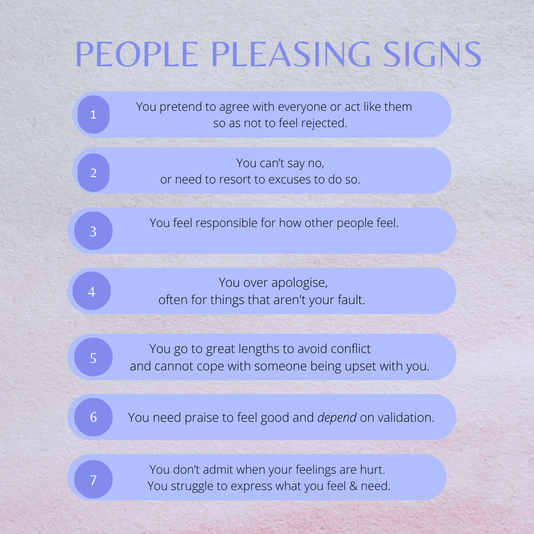

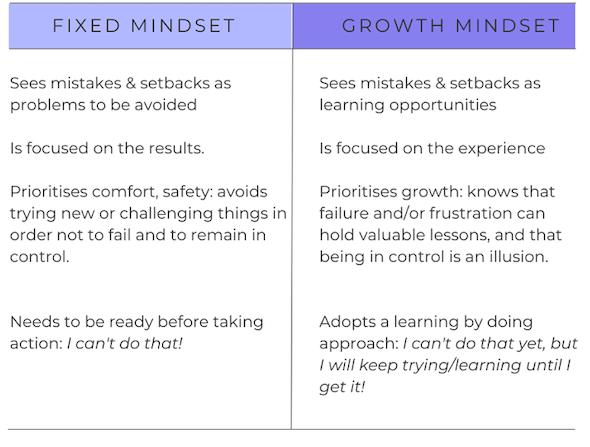

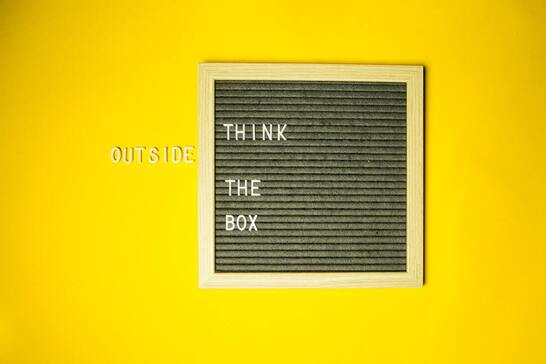



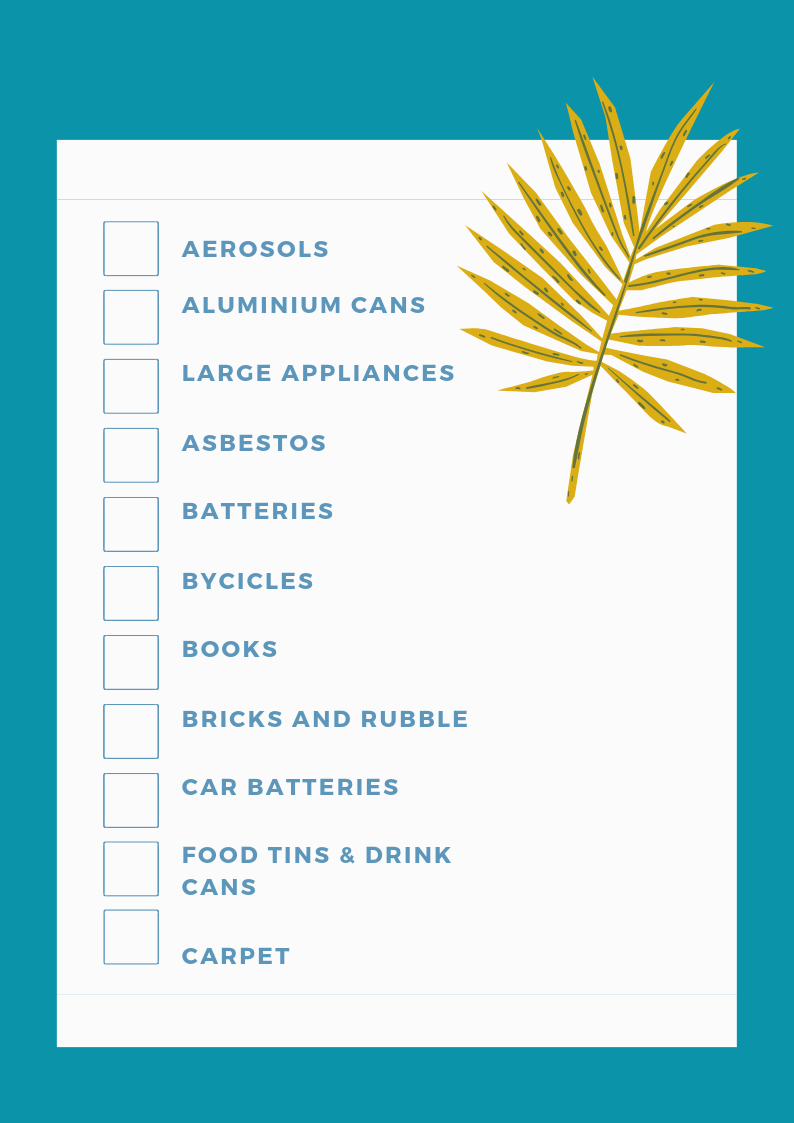
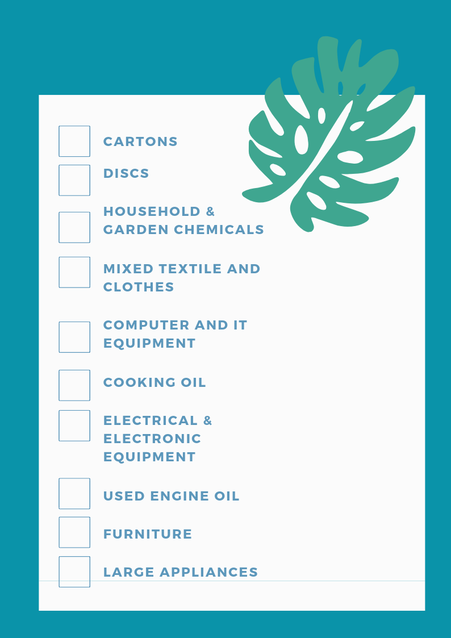

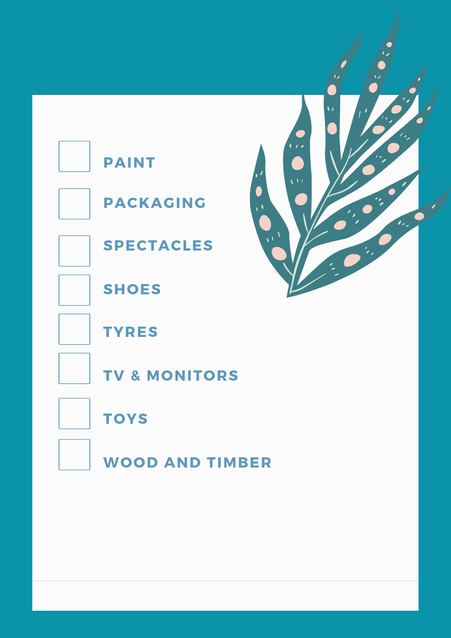
 RSS Feed
RSS Feed